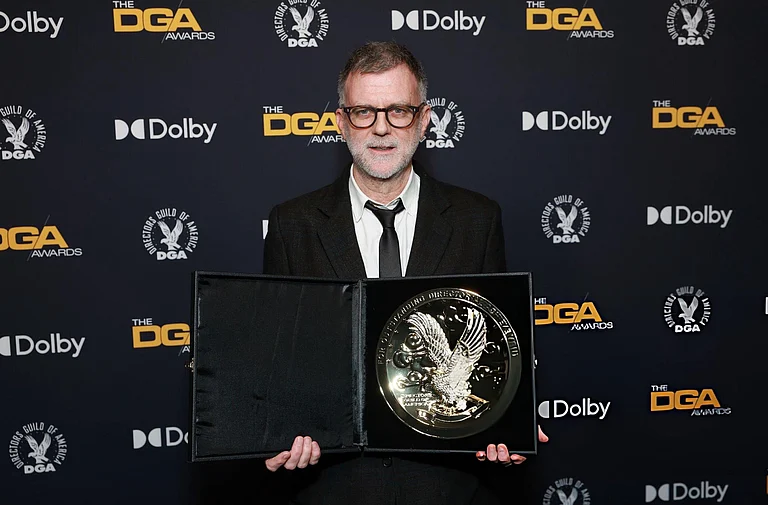A few years ago Peter Cochrane, head of British Telecom (BT) Research and Technology Labs, decided to make simplicity the keyword in his office. Among other changes, he did away with the use of paper. He wasn't implementing any revolutionary management concept. He had all that he needed on his computer screen.
For Cochrane, a veritable pundit in an integrating world of computer, telephone and broadcasting, the future is here. As he spoke on the future of telecom technologies at a conference in Delhi last week, Cochrane teleported his audience from a surreal world into a real one, a realm where it's difficult to decide who's the master—man or computer.
Has this transformation taken place in a very short time? Cochrane cites the example of his four children, of whom two daughters, in their twenties, distinctly remember growing up with black-and-white televisions. Another son, 16, too is interested in television. But for the youngest, aged 11, computers are the first and last word. "Did you play these games when you were my age?" he once asked Cochrane. "No," the technologist shrugged his shoulders. "Then, what would you do in your spare time?" the little kid asked, bemused. And there is just a 14-year gap between the two siblings.
That, in essence, is the direction the world is headed in. Computers and telephony will dominate the connected world that we're walking into. As more and more gizmos—pagers, cellphones, satellite phones—surround the individual, he virtually carries his office around him. Come to think of it, soon he might not even need to go to office. Just remote login to his office server, the rest will be business as usual.
"But to expect the average human being to use a computer is a real challenge. I think it has to be made really, really simple for that," says Cochrane, who carries 30 years of experience behind him.
It's telephony that Cochrane sees playing a crucial role in the future. "If you switch off the world's telephone network now, half the human race will be dead within a month," says Cochrane. Hard disk space, getting cheaper by the day, will increase computing power 1,000 times in the next 10 years, a million times in 20 years and a billion times in 30 years! There's no reason therefore why man should behave like a machine when machines can be made to behave like humans.
Such are the rapid changes in telephony and computing that they've effected mindboggling applications in the infotech industry. Cochrane, for example, wears two rings on his right hand—one which has been handed down over several generations and another which has a chip embedded on it, and which contains details of his bank, driving licence, passport and complete health record. And can hold anything more he might wish to.
Today, Cochrane employs under him a team of biologists, information technology specialists, telecom engineers, physicists and other professionals from a variety of fields. They all have one aim: trying to understand how information technology can be used to help growth in other areas. "I have even offered a doctor to put a chip under my skin so that I am saved the hassle of carrying cash, unlocking the house and paying at a store. The chip can have other information too," he says.
"One day I realised I spend a total of 15 days in a year just looking for something interesting to read in a newspaper. I don't want to do that," says Cochrane. "That's a waste of time. So, for those who need it, only information that is required will be made available. Result: a lot of time is saved." And that's not all. Beyond wireless telephony, a new concept that is catching on is infra red. Walk into office, click the infra-red button on the cell-phone and you're connected to the computer, which has an infra-red sensor. "That will make wires in offices disappear," proclaims the guru.
He does have a few words of advice for India, presumably aimed at the department of telecommunication. "Invest in an optic fibre network, first among the main cities and then smaller ones. Then use that for educating the masses since the medium has tremendous reach," he says. Of course, the advantage of lagging behind is that India can leap technologies and invest in the latest technology.
And this is what BT India managing director Arun Seth has to say about Cochrane. "With people like Peter Cochrane, we are sure we have some knowledge about the future." Some knowledge, indeed!


























